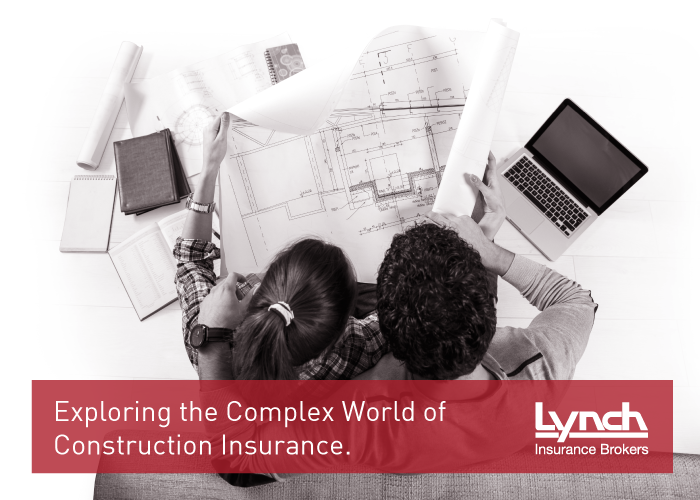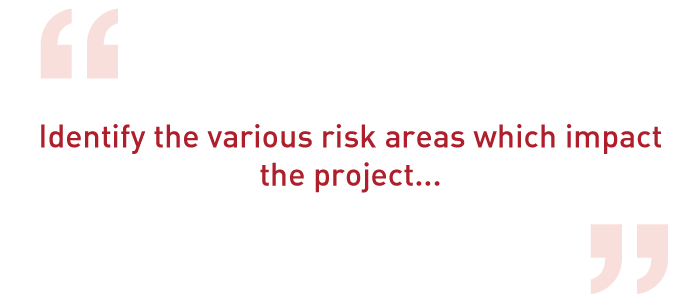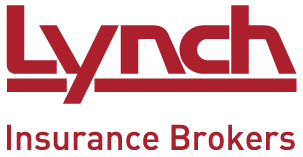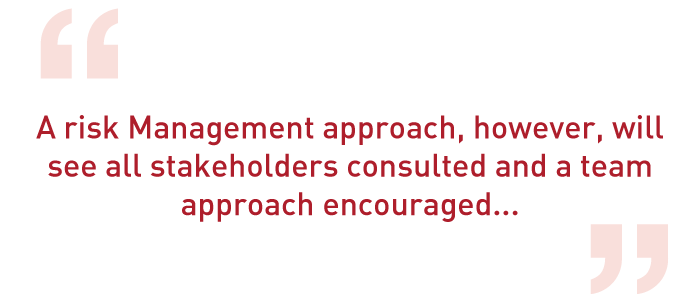Exploring the Complex World of Construction Insurance

So you have just bought a piece of land and are busy planning to build your dream home? Or maybe you own an existing house that is in need of some refurbishment? Chances are you are busy meeting with your architect and contractor to see how to make your dream property become a reality, but what if things don’t go according to plan? For many of us the plan is very simple, to transform our lifelong dream into a reality, and to do that we hire a team of experts to help make this happen. Sometimes things don’t go according to plan, and it begs the question of whether you have properly considered this in your plan? For many of us, the answer is no. The reason for this is that building a home is often one of the largest financial risks a person will take in their life, and in order to “take the plunge” into what is often an extended period of debt, people often tune out negative thoughts in the early stages in order to get themselves over the line mentally. In so doing, security considerations for the project such as insurance often get overlooked during this period of indecision and information overload. Fortunately, we have some checks along the way that force us to consider these negatives such as our bankers if we have a mortgage, our project managers and our lawyers. These professionals quite often do a good job at forcing the issue, but due to timing, we often find that not enough attention is paid to the details of the insurance that may have been arranged. It is also no coincidence that building contractors and professionals are traditionally required to provide various levels of security such as bonds and insurance cover, since the nature of their job sees them undertaking massive risks that they could not be reasonably expected to cover on their own without external help from insurers and finance houses.

In addition, even when insurance is placed, unless the owner gets involved personally or has a competent party such as an experienced insurance broker working on their behalf, coverage is often placed based on the primary needs of the party insuring the same as opposed to the interests of the principal. This gap in interests can often be closed considerably with well worded contracts such as the FIDIC and JCT forms, but even these may need amending to suit particular risks, and less cumbersome forms like our local BIA minor works forms are a great start but may still require some help.
So where to start? Well as the famous quote goes “……...at the beginning”.

There are a few basic steps to consider when considering a Construction Project:
- Identify the various risk areas which impact the project from four perspectives: financial, strategic, operational and hazard.
- Design and negotiate a cost-effective, custom-made insurance program tailored to your needs;
- Mitigate through loss-control, disaster planning and crisis management programs across the risk priorities identified to prevent and/or reduce the impact of losses before it is too late and co-ordinate the claims management process that will help mitigate the cost of incidents.
The Main Areas of Insurance to be considered are as follows:
- Contractor’s All Risks Insurance and General Liability cover
- Employers Liability
- Bonds for areas of financial risk
- Professional Indemnity cover for design and consultants
Contractor’s All Risks Insurance (CAR) and General Liability Insurance
The traditional approach to insurance has been to pass it along to someone lower down the chain, and this is reflected in many forms of construction contracts where contractors are required to take out insurance on the works up to the point of practical completion. There are, however, some problems with this approach, and most stem from the difficulties inherent in you not being in a position to determine the extent and efficacy of the coverage that has been arranged for your benefit. A risk Management approach, however, will see all stakeholders consulted and a team approach encouraged at a planning and contractual level. Risks should be borne by the party most suited to mitigate them, and with a proper risk assessment any gaps in cover can be bridged.
How should you insure?
A blanket project specific CAR insurance policy and/or a Wrap-up general liability policy covering the combined interests of all interested parties is often desirable as it offers a broader scope of cover to include persons often overlooked when attempts are made to name everyone specifically. Many construction companies have annual CAR policies, which are better suited for smaller works, and these can be modified to protect the financial interest of the principal and creditors. This can be done through naming these parties as named or additional insured’s depending on which is more beneficial.
What is Insured?
In general, a Contractors All Risks Insurance Policy will insure the insured party or parties against Material Damage to the insured Contract Works as well as General Liabilities connected to the project.
Material Damage coverage is generally written on an ‘All Risks’ basis, which entails that all risks of physical loss or damage are covered subject to certain exclusions listed therein. The Sums Insured on the Contractors All Risks Policy need to be arrived at by assessing, and including where applicable, separate sums insured for the Value of the Contract Works (Replacement cost including all VAT and duties) which would include all permanent and temporary works forming part of the Contract Works including site huts and building materials. Your contractor may also require cover for Existing Structures, Constructional Plant, Tools and Equipment not otherwise insured, while you should consider including cover for Removal of Debris (remove, dismantle, demolish insured property), Professional Fees, Clean Up Costs (of uninsured Debris), 1% Stamp Duty that is levied on claims, and possibly Expediting Expenses.
Liability to Third Parties also needs careful consideration, and generally this Section of any CAR policy provides cover for accidental bodily injury to any person as well as accidental damage to property subject to your chosen limits of liability and various exclusions. The setting of your Limit of Liability in respect of any one claim or number of claims arising out of one occurrence, as well as the aggregate limit, is a matter that needs to be carefully evaluated. Do not rely on ‘Industry Standard’ or legal minimum to guide you. Assess your own exposure and speak with your attorney and broker to guide you on a sum that strikes a balance between the likely cost of your exposure and resulting premium.
There are also many Common Exclusions such as Defective Workmanship & Faulty Design, Damage Loss or Liability arising out of Vibration or the withdrawal or weakening of support, Flood, Fumes and Pollution, Professional Negligence, Employee Injury and Fire and Explosion Liability to name but a few. Many of these, along with additional covers such as Cross Liabilities and Goods In Transit, can be brought back into a policy for sometimes additional premium and/or compliance with certain risk management terms so a good broker will be able to guide you on what additional risks can be covered and how it might be achieved.
Pay special attention as well to any policy deductibles, and decide who is to be responsible for these amounts in the event of a claim. For example, a standard deductible for a hurricane loss would be 2% of the sum insured, which on a $5M house would equate to $100,000. Be clear on whether you or your building contractor will absorb this and structure your insurance policy accordingly.
Care also needs to be taken with any Warranties and restrictive Conditions, which can have the effect of rendering the entire policy null and void if breached, and in the case of Warranties, even if the breach has nothing to do with the loss suffered!
Employers’ Liability Insurance
This simply covers your legal liability to your Employees arising out of negligence. This is not medical insurance, so a claim will only be settled if negligence on the part of the insured is established. There is no legal requirement to have Employers Liability Insurance cover in many jurisdictions such as Barbados so you need to not only be careful about your own cover, but also check that companies doing work for you have the same in place with adequate limits. There are also intricacies to consider that a good broker will help you with such as the standard exclusion of liability to employees working at heights over 30’ that may need to be extended.
Bonds
As mentioned earlier, the financial security of the parties whom you entrust your funds with to build your property is a key concern, and Bonds help fill this gap in traditional insurance covers. You should note that Bonds are NOT Insurance – Bonds are financial guarantees issued by a credit institution to cover specific financial obligations, and in the event a bond is called, the amount called must still be repaid by the Contractor. Insurance companies and Commercial Banks are common sources of Bonds for building Contractors and other parties working on projects since the vagaries of the business often demands that security over and above the reputation of the company to perform is needed.
The main types of Bonds that you may consider for a construction project are:
Bid Bonds (AKA Tender Bonds): Often required by Tenders as a means of ensuring that candidates are serious about the process and will be penalized for the costs associated with the process should they fail to proceed with the award of the contract.
Performance Bonds: A type of surety bond often required of Contractors as a means of guaranteeing the satisfactory completion of a project. Bonded amounts vary from 10% to 20% of the contract sum, and seek to provide an award to the principal for losses up to the bonded amount.
Advance Payment Bonds: A type of surety bond to cover the mobilization fee paid to the contractor and covering the eventuality that he should fail to deliver on the contract and not repay the money.
Retention Bonds: This bond covers the retention amount and can be called upon if needed by the Principal if the Contractor defaults on his obligations.
Professional Indemnity Insurance
Professional Negligence is a common exclusion under General Liability insurance policies. Hence it is vital for both you and Contractors to ensure that all Consultants and Professionals, including your insurance Broker who you may consult on this cover, along with all others who give professional advice, either be in a position to live up to their responsibilities or have an insurance policy in place to cover the same. The reality is that given the scope of risks involved few can handle their liabilities themselves, even though the likelihood of something happening varies greatly by profession.
In addition, with the recent popularity of Design Build Contracts and their variations, the lines between who is ultimately responsible for errors in design and advice are becoming more blurred than ever. Consultants as well are taking on the roles formerly handled by other professionals, and often act as Lead Consultant on jobs and hire Engineers, Architects, Quantity Surveyors and the like to perform work for them. Care needs to be taken to ensure that you understand the risks that exist, but also the costs associated, and make sure your insurers are informed of the various roles and that cover extends to each of them.
Do not depend on any legislation to protect you from professionals who lack this type of cover, as even where it is mandated, it is often ridiculously low as in the case of insurance Brokers in Barbados where the current requirement is only $1,000,000.00 in cover. At Lynch we carry $40,000,000.00 in cover.
In conclusion, your decision to build a new property is a big one, and you need to proceed with a degree of caution in protecting your investment during the construction phase. Most problems stem from a lack of understanding of what is covered and conversely what is not covered. Lack of questioning on the part of the insured as well as sometimes-poor dissemination of documents by insurers compounds the problem. Too much focus is often placed on price at the expense of the scope of cover being offered or the security of the insurance company being insured with, and small details such as failure to disclose material facts like for example blasting of the foundation could easily see a claim for injury or loss to a Third Party being denied.
Hopefully this article has not killed your enthusiasm at your new project, and an insurance broker in the construction field can greatly enhance the process of making sure you are well advised on your potential risks and what your insurance dollars are being spent on.
James Peirce is a Director of Lynch Insurance Brokers Ltd. with 23 years experience in the field and specializes in commercial insurance broking, placement, claims negotiations and program structure. He is active in the broking field as Account Executive for several of Barbados’ largest companies, and is also the Director of Business Development. Apart from holding a Bachelors Degree in Marketing, he also holds a Diploma in Insurance from the Chartered Insurance Institute of the UK.
James can be contacted by telephone at 246 230-2684 or by email at james.peirce@lynchbrokers.com
Making the next, right decision for the future of your business takes Experience + Insight + Foresight.
This is what we bring to the table.
When it comes to risk we don’t take chances.
We are your Trusted Risk Advisor.

About Lynch
Lynch Insurance Brokers Ltd. is a risk advisory and insurance services firm. Our mission is solving our client's key risk concerns and in so doing make them more successful. We are an Associate company of Marsh Ltd., and are able to leverage their international expertise and market access to deliver innovative thinking to addressing our client's risk and insurance needs.
For more information: info@lynchbrokers.com
http://www.lynchbrokers.com
©2014 Lynch Insurance Brokers, St. Michael, Barbados. All Rights Reserved. Lynch Insurance Brokers believes the information in this document is accurate as of its publication date; such information is subject to change without notice. Lynch Insurance Brokers acknowledges the proprietary rights of other companies to the trademarks, product names and such other intellectual property rights mentioned in this document. Except as expressly permitted, neither this documentation nor any part may be reproduced, stored in a retrieval system or transmitted in any form by any means, electronic, mechanical, printing, photocopying, recording or otherwise, without the prior permission of Lynch Insurance Brokers and/or any named intellectual property rights holders under this document.


